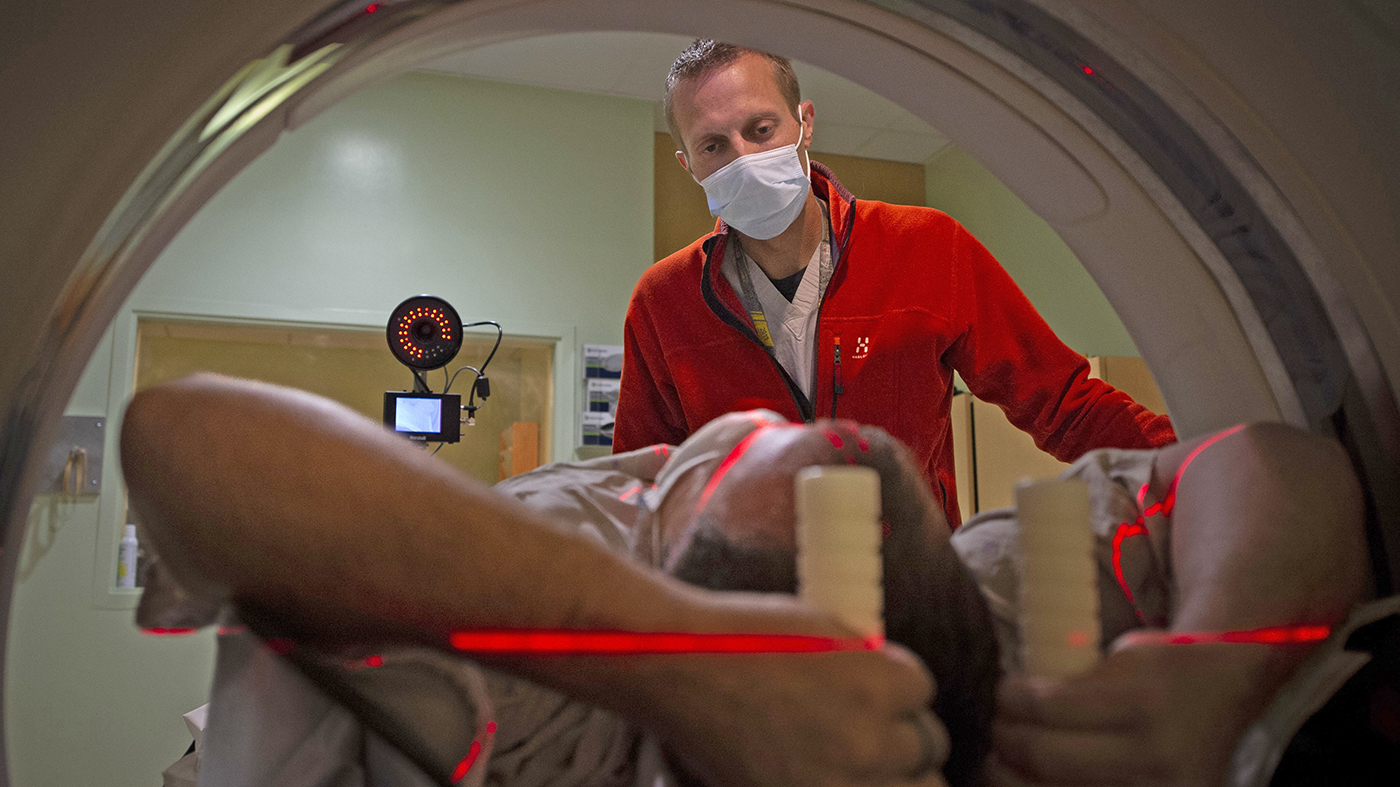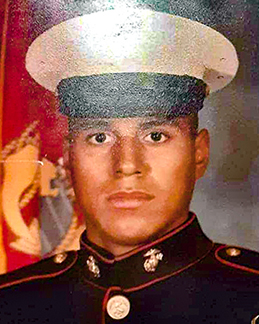The inspiring story of a Marine Corps Veteran who beat lung cancer with the help of early detection and care provided by VA serves as a powerful example to stay on top of your recommended lung cancer screening.
Choosing VA care
Edward Cerda served from 1983 to 1987. After his years of service, he didn’t interact with VA health care until he learned about new health care benefits from the 2012 Camp Lejeune health care law. This legislation enabled VA to provide cost free health care for certain conditions to Veterans who served at least 30 days of active duty at Camp Lejeune from Aug. 1, 1953 and Dec. 31, 1987.
It wasn’t until 2015 that Cerda decided to explore getting health care through VA. It was at this point that his journey toward early lung cancer detection truly began.
Embracing early screening and provider guidance
Cerda began undergoing annual blood work and yearly physicals at his VA medical center in Crown Point, Indiana. His path to early detection started when his primary care provider talked to him about the potential benefit of having a CT scan to screen for lung cancer largely due to his age and history of smoking.
The CT scan revealed a startling truth: He had early-stage lung cancer.
“I didn’t think I was sick, I thought I was fine. The screening was a reality check,” Cerda said.
Cerda is thankful that he followed the recommendation of his provider, Carli Doorn, a nurse practitioner he called his “guardian angel.” It was Doorn who encouraged Veterans to, “Go get screened. It’s all about doing the early detection. It’s all about finding it early and taking care of it early.”
Exceptional care and support
One of the standout aspects of Cerda’s journey was the remarkable care and support he received from VA health care. He notes that the entire care coordination team at VA supported him by addressing his worries and fears at every turn. This support was instrumental in his fight against lung cancer.
He underwent surgery to remove a portion of his lower left lung in 2022, and he’s been vigilant with his check-ups ever since. The surgery was a success, but it was early detection through screening that made it possible.
Advocating for early screening
Cerda is now a staunch advocate for early and regular lung cancer screening. He acknowledges that it might seem inconvenient at times, but he can’t stress enough how worthwhile it is.
His story demonstrates how following screening guidelines and prioritizing your health can save your life, and Cerda urged his fellow Veterans to trust VA. “I followed doctors’ orders, I met the right people at VA, and here I am,” he said.
VA’s nationwide effort for Lung Cancer Screening Day
In honor of Lung Cancer Awareness Month and Veterans Day, VA is proud to participate in the second annual National Lung Cancer Screening Day Nov. 11. Throughout the month, over 110 VA medical facilities nationwide will engage in screening awareness outreach efforts during Lung Cancer Screening Week.
Lung cancer, one of the deadliest cancers among Veterans, can be treatable when detected early. You may qualify for lung cancer screening if you meet these criteria:
- You are 50 to 80 years old
- Smoke cigarettes now or quit within the past 15 years
- Smoked cigarettes for at least 20 pack years
A “pack year” is an estimate of how many tobacco products you have smoked in your lifetime. Twenty “pack years” equals smoking one pack of cigarettes a day for 20 years or two packets of cigarettes a day for 10 years.
Enrolled Veterans are encouraged to contact their primary care providers and participate in the week’s events to prioritize their lung health. VA remains steadfast in improving Veterans’ lives through early detection and comprehensive care.
To learn more about how VA works to expand access and reduce barriers to cancer care at VA, visit cancer.va.gov. Visit My HealtheVet to learn tips and tools to help you partner with your health care team, so together, you may work to manage your health.
Topics in this story
More Stories
As severe weather threatened Mississippi, local news warned of a dangerous outbreak of tornadoes. A VA nurse stepped up.
Dorothy “Pat” Rudd, 103, World War II Navy Veteran, has lived a life of service, pioneering the way for women in the military.
VA employees help return WWII items to two brothers’ families. Both brothers were WWII Veterans.







Wow! So happy that he has a good VA to go to. Wish they were all like that…
I also suffered from lung cancer and bone cancer, both in 2012, also I’ve had bladder cancer first in 2009 then it returned this year where I’ve gone thru 3 surgeries and the removal of my bladder and prostrate, I’ve been involved with the VA for 11 years and have 2 100% disabilities. Because I cannot work the VA disability benefits are a God send.
I’m now; with some problems of lung cancer because, long use of cigarette smoking. I might need a CAT scan of my lungs & brain therefore I’m ashamed of myself for it!
Really appreciated this article. Retired Navy Nurse who had a smoking history. 4 years ago my Bay Pines PCP ordered a lung CT for me. Results showed a small lesion. Went through PET Scan that showed no growth right after and now after 3 years getting the repeat scans every year. For me it stopped all cheating with cigarettes. I have had other VA preventive care scans etc. that surprised my Medicare Advantage PCP who finds it hard to get his patients to get any of these. He’s impressed as I.
I have requested a lung cancer screening thru my PCP and he will not give me a referral for screening. I was to have X-ray but we know CT scanning is one of the more conclusive tests. I spent 30yrs smoking. I have had Prostate cancer and other forms of problems related to the year spent in Vietnam 1/4 Cav 1st Infantry Division 3/19/68 thu 3/69. At this time the most defoliant ,Operation Ranch Hand was sprayed in my AO—40k North of Siagon at the start of “TET “. During my tour I was also ordered to burn human waste with fuels of toxic nature. I have been permanently and totally disabled for a number of years. 100% plus rating since 2006 with a number of SC problems. Early detection is the factor of focus for a healthy life to spend with family. Please consider and share some directions going forward. Thank You now that the VA is beginning to recognize Veterans need for CT scanning,